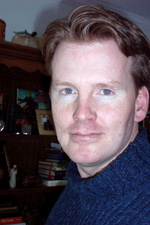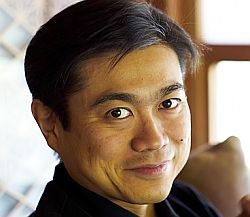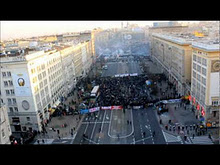
Part I: Sources of the Occupy Movement
Part II: Influence of Activist Arts & Video Game Culture
Part III: Ongoing Movements and Organizing
Feminist and anti-oppression activists, the human potential movement, and other ongoing organizers and movements for human betterment have played important roles in the emergence and nature of the Occupy movement. (The articles below are just a few examples.) Such movements have been organizing demonstrations, communities and networks and transforming people's consciousness and behavior in one form or another for hundreds of years. They've been training and empowering people and exposing them to the dark side of the social systems they live in and the possibilities for a better world, even as they themselves have become more experienced, aware, and skilled at new ways of living and being together.
Many people became leaders and practitioners of these organizing and transformational skills, forming a dispersed pool of resources for disparate transformational activities over the last many decades. The high purpose, tremendous passion, propitious timing, evocative non-specificity and intense community of OWS attracted a wide variety of these folks to its various centers of activity – the Occupations themselves – and into diverse support, leadership, and teaching roles. And then much was learned, experienced, created, modified… Had there been no past movement activities generating this pool of experience and skill, the Occupy movement would have looked very different indeed. And now the Occupy movement itself has become part of that ongoing learning, deepening, evolving collective experience…
As Occupy encampments are broken up by authorities, various commentators wonder if the movement is falling apart. They forget that through the activities of OWS in the last several months, tens of thousands of people have not only been inspired but have also taken leaps in awareness, experience and skill and that new leaders have emerged and new networks and groups have formed and new questions are being asked by newly focused and empowered citizens. The fact that this development is diffuse and nonlinear does not mean it does not exist. It only means that mainstream eyes will not necessarily recognize the new forms in which it will surface, over and over and over, expanding and adapting as it goes.
As one OWS sign insightfully said – in words whose significance not everyone will grasp – “This is a movement, not a protest.”
I have a feeling we ain't seen nothin' yet…
Blessings on the Journey. It has been a long time.
Coheartedly,
Tom








